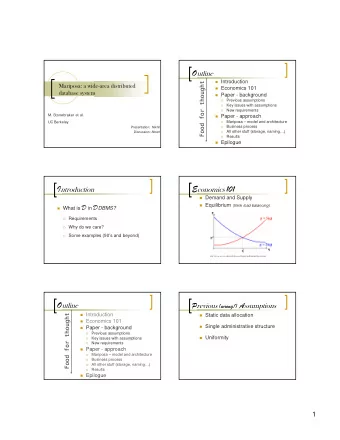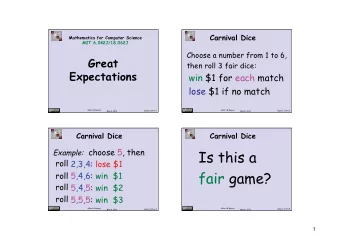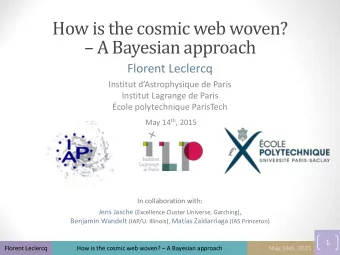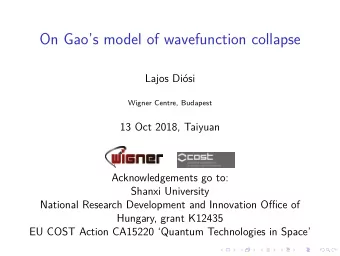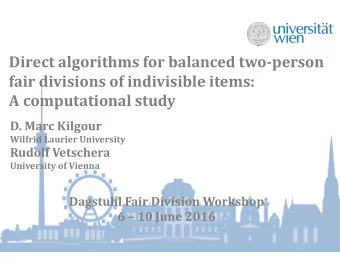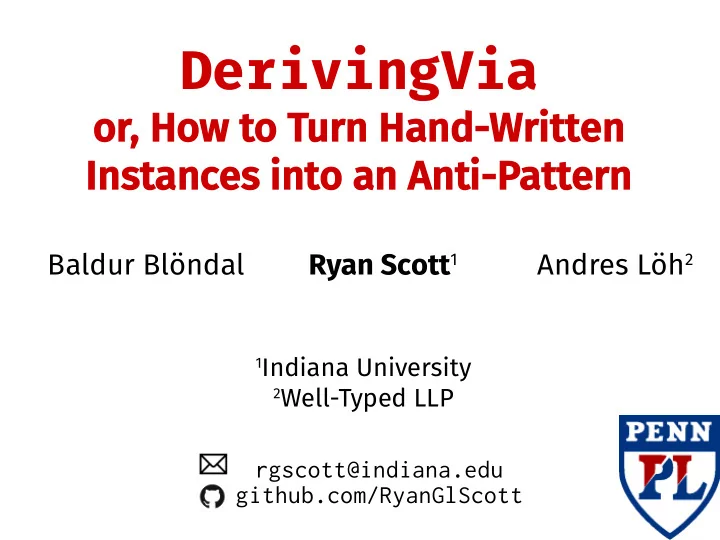
DerivingVia or or, Ho , How t to T o Tur urn H n Hand - PowerPoint PPT Presentation
DerivingVia or or, Ho , How t to T o Tur urn H n Hand and-Writt itten en Ins nstan tances i es into an o an Ant Anti-P -Patt attern rn Baldur Blndal Ryan Scott 1 Andres Lh 2 1 Indiana University 2 Well-Typed LLP
DerivingVia or or, Ho , How t to T o Tur urn H n Hand and-Writt itten en Ins nstan tances i es into an o an Ant Anti-P -Patt attern rn Baldur Blöndal Ryan Scott 1 Andres Löh 2 1 Indiana University 2 Well-Typed LLP rgscott@indiana.edu github.com/RyanGlScott
A brief history of deriving deriving Haskell 98 Report (various authors): Derive the Blessed Type Classes™ data Grade = A | B | C | D | F instance Eq Grade where A == A = True B == B = True ... _ == _ = False
A brief history of deriving deriving Haskell 98 Report (various authors): Derive the Blessed Type Classes™ data Grade = A | B | C | D | F deriving Eq
A brief history of deriving deriving Haskell 98 Report (various authors): Derive the Blessed Type Classes™ data Grade = A | B | C | D | F deriving ( Eq, Ord, Read, Show , Enum, Bounded, Ix )
A brief history of deriving deriving GHC extensions (various authors): Derive these other blessed classes {-# LANGUAGE DeriveDataTypeable #-} {-# LANGUAGE DeriveGeneric #-} data Grade = A | B | C | D | F deriving ( Data, Generic , ... )
A brief history of deriving deriving GHC extension (Peyton Jones, 2001): Derive anything (through newtypes) instance Num Int where ... newtype Age = MkAge Int instance Num Age where MkAge x + MkAge y = MkAge (x + y) ...
A brief history of deriving deriving GHC extension (Peyton Jones, 2001): Derive anything (through newtypes) {-# LANGUAGE GeneralizedNewtypeDeriving #-} instance Num Int where ... newtype Age = MkAge Int deriving Num
A brief history of deriving deriving GHC extension (Magalhães, 2014): Derive anything (through empty instances) class Foo a where bar :: a -> String bar _ = “Sensible default” data Baz = MkBaz instance Foo Baz
A brief history of deriving deriving GHC extension (Magalhães, 2014): Derive anything (through empty instances) {-# LANGUAGE DeriveAnyClass #-} class Foo a where bar :: a -> String bar _ = “Sensible default” data Baz = MkBaz deriving Foo
A brief history of deriving deriving GHC extension (Scott, 2016): Be explicit about how you derive things {-# LANGUAGE DerivingStrategies #-} newtype Age = MkAge Int deriving stock (Eq, Ord) deriving newtype Num deriving anyclass Bar
class Monoid a where mempty :: a mappend :: a -> a -> a class Applicative f where pure :: a -> f a liftA2 :: (a -> b -> c) -> f a -> f b -> f c
instance Monoid a => Monoid (IO a) where mempty = pure mempty mappend = liftA2 mappend
instance Monoid a => Monoid (ST s a) where mempty = pure mempty mappend = liftA2 mappend
instance Monoid b => Monoid (a -> b) where mempty = pure mempty mappend = liftA2 mappend
instance (Monoid a, Monoid b) => Monoid (a, b) where mempty = pure mempty mappend = liftA2 mappend
instance (Applicative f, Monoid a) => Monoid (f a) where mempty = pure mempty mappend = liftA2 mappend
instance (Applicative f, Monoid a) => Monoid (f a) where mempty = pure mempty mappend = liftA2 mappend instance Alternative f => Monoid (f a) where mempty = empty mappend = (<|>)
instance (Applicative f, Monoid a) => Monoid (f a) where mempty = pure mempty mappend = liftA2 mappend instance Alternative f => Monoid (f a) where mempty = empty mappend = (<|>)
instance (Applicative f, Monoid a) => Monoid (f a) where mempty = pure mempty mappend = liftA2 mappend Can we abstract this pattern out without the pain of instance overlap?
instance (Applicative f, Monoid a) => Monoid (f a) where mempty = pure mempty mappend = liftA2 mappend Can we abstract this pattern out without the pain of instance overlap? Well, sort of...
newtype Ap f a = Ap { getAp :: f a } Can we abstract this pattern out without the pain of instance overlap? Well, sort of...
newtype Ap f a = Ap { getAp :: f a } instance (Applicative f, Monoid a) => Monoid (Ap f a) where mempty = Ap (pure mempty) mappend (Ap fa) (Ap fb) = Ap (liftA2 mappend fa fb) Can we abstract this pattern out without the pain of instance overlap? Well, sort of...
instance Monoid a => Monoid (IO a) where mempty = pure mempty mappend = liftA2 mappend
instance Monoid a => Monoid (IO a) where mempty = getAp (mempty :: Ap IO a) mappend p1 p2 = getAp (mappend (Ap p1) (Ap p2) :: Ap IO a)
instance Monoid a => Monoid (IO a) where mempty = getAp (mempty :: Ap IO a) mappend p1 p2 = getAp (mappend (Ap p1) (Ap p2) :: Ap IO a) ( ° ° ┻━┻ ) ╯ □ )╯︵ )╯︵
“ deriving ought to be able to write this code for you! ”
instance Monoid a => Monoid (IO a) where mempty = getAp (mempty :: Ap IO a) mappend p1 p2 = getAp (mappend (Ap p1) (Ap p2) :: Ap IO a)
data IO a = ... deriving Monoid ???
data IO a = ... deriving Monoid via (Ap IO a)
{-# LANGUAGE GeneralizedNewtypeDeriving #-} instance Num Int where ... newtype Age = MkAge Int deriving newtype Num
instance Num Int where ... newtype Age = MkAge Int instance Num Age where MkAge x + MkAge y = MkAge (x + y) ...
instance Num Int where ... newtype Age = MkAge Int instance Num Age where (+) = unsafeCoerce ((+) :: Int -> Int -> Int)
unsafeCoerce :: a -> b unsafeCoerce instance Num Int where ... newtype Age = MkAge Int instance Num Age where (+) = unsafeCoerce ((+) :: Int -> Int -> Int)
unsafeCoerce :: a -> b unsafeCoerce coerce coerce :: Coercible a b => a -> b instance Num Int where ... newtype Age = MkAge Int instance Num Age where (+) = {- unsafeCoerce -} coerce ((+) :: Int -> Int -> Int)
coerce coerce :: Coercible a b => a -> b Only typechecks if types a and b have the same runtime representation .
coerce coerce :: Coercible a b => a -> b Only typechecks if types a and b have the same runtime representation . newtype Age = MkAge Int
coerce coerce :: Coercible a b => a -> b Only typechecks if types a and b have the same runtime representation . newtype Age = MkAge Int instance Coercible Age Int instance Coercible Int Age
coerce coerce :: Coercible a b => a -> b Only typechecks if types a and b have the same runtime representation . newtype Age = MkAge Int instance Coercible (Age -> Age) (Int -> Int) instance Coercible (Int -> Int) (Age -> Age)
coerce coerce :: Coercible a b => a -> b Only typechecks if types a and b have the same runtime representation . newtype Age = MkAge Int succInt :: Int -> Int succInt i = i + 1 succAge :: Age -> Age succAge = coerce succInt
data IO a = ... deriving Monoid via (App IO a)
data IO a = ... deriving Monoid via (App IO a) instance Monoid a => Monoid (IO a) where mempty = coerce (mempty :: Ap IO a) mappend = coerce (mappend :: Ap IO a -> Ap IO a -> Ap IO a)
data IO a = ... deriving Monoid via (App IO a) instance Monoid a => Monoid (IO a) where mempty = coerce (mempty :: Ap IO a) mappend = coerce (mappend :: Ap IO a -> Ap IO a -> Ap IO a) Typechecks since IO a and Ap IO a have the same runtime representation.
De Deriv iving ngVia ia is generalized GeneralizedNewtypeDeriving GeneralizedNewtypeDeriving
De Deriv iving ngVia ia is generalized GeneralizedNewtypeDeriving GeneralizedNewtypeDeriving newtype Age = MkAge Int deriving newtype Num ==> instance Num Age where (+) = coerce ((+) :: Int -> Int -> Int) ...
De Deriv iving ngVia ia is generalized GeneralizedNewtypeDeriving GeneralizedNewtypeDeriving newtype Age = MkAge Int deriving Num via Int ==> instance Num Age where (+) = coerce ((+) :: Int -> Int -> Int) ...
Case studies ● QuickCheck QuickCheck ● Excluding types in datatype-generic algorithms
Case study: QuickCheck QuickCheck QuickCheck is a library for testing random properties of Haskell programs. class Arbitrary a where arbitrary :: Gen a -- Generate random ‘a’ values
Case study: QuickCheck QuickCheck QuickCheck is a library for testing random properties of Haskell programs. class Arbitrary a where arbitrary :: Gen a -- Generate random ‘a’ values > sample’ (arbitrary :: Gen Bool) [False,False,False,True,True,True,False,True, False,False,True]
Case study: QuickCheck QuickCheck QuickCheck is a library for testing random properties of Haskell programs. class Arbitrary a where arbitrary :: Gen a -- Generate random ‘a’ values > sample’ (arbitrary :: Gen Int) [0,1,-1,-6,6,-7,5,13,1,8,1]
Case study: QuickCheck QuickCheck QuickCheck is a library for testing random properties of Haskell programs. class Arbitrary a where arbitrary :: Gen a -- Generate random ‘a’ values > sample’ (arbitrary :: Gen [Int]) [[],[],[3],[1],[1,1,-6,5,-5],[],[7,-11,7],[5], [-16,15,-14,-12,5,-11],[6,1,-8,-16,9,1,15,4,-5, -18,-15,-18,-2],[-16,17,9,-3,-13,-9,11,-18, -6,8,1,-4,-5,-1,-17]]
Q: What if we want to generate random values subject to constraints?
Recommend
More recommend
Explore More Topics
Stay informed with curated content and fresh updates.
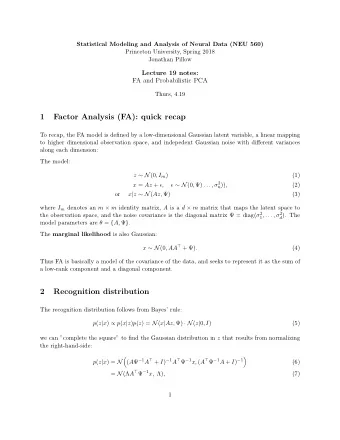


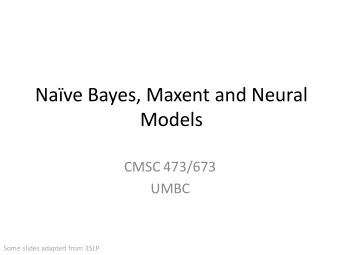
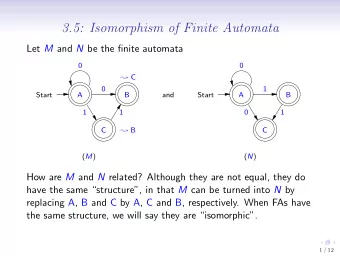
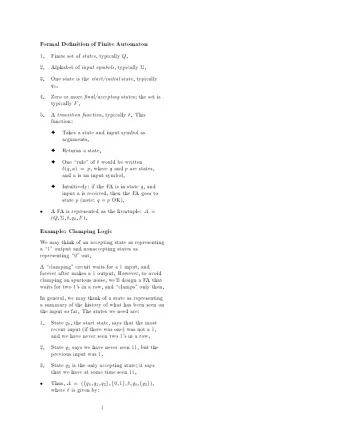


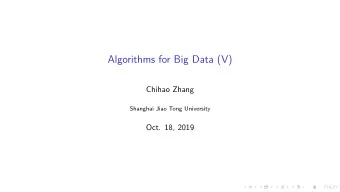
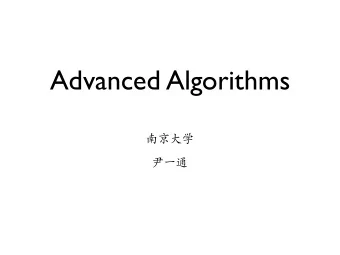
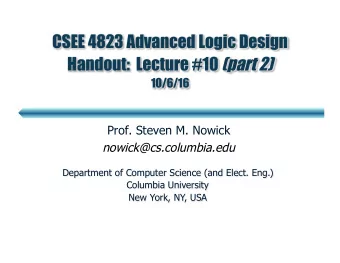
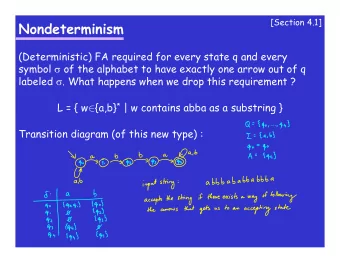

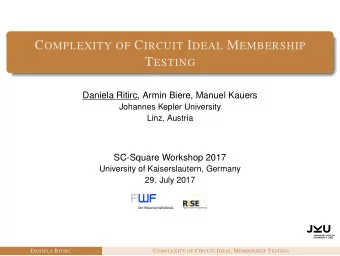


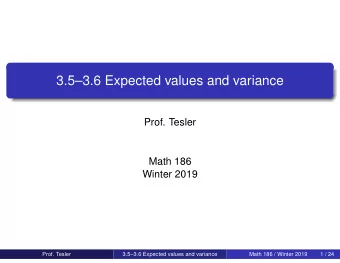
![Hoeffdings Bound Theorem Let X 1 , . . . , X n be independent random variables with E [ X i ] =](https://c.sambuz.com/922146/hoeffding-s-bound-s.webp)
